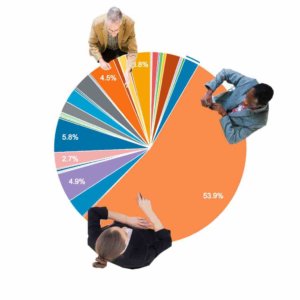Issues of accessibility and diversity discussed at Presently Engaged: Social Sciences Roundtable
This week at Mount Allison, experts in the field of disability engaged students in a conversation about accessibility. The conversation was hosted on Oct. 20 at the University’s second annual Presently Engaged: Social Sciences Discussions. The roundtable hosts social scientists with backgrounds in the selected topic. This year, panelists Heather Kuttai, Christiana MacDougall and Mario Levesque spoke on accessibility.
MacDougall, a professor of sociology and women’s and gender studies, was the first to speak on the relationship between the reproductive rights and the disability rights movements. For her research, MacDougall interviewed mothers with traumatic birth experiences. “One of the main themes that I, and others writing in this field, discuss is the problematic idea that all that matters is a healthy baby,” said MacDougall. “What does this statement mean to parents who might not have a healthy baby or who are navigating messages about what constitutes a healthy baby?” MacDougall also spoke about the intersection of disability and abortion rights, explaining that underlying structural issues of oppression mean that both sides are fighting the same fight.
The following panelist was Mario Levesque, an associate professor in the politics and international relations department, who spoke about how governments make accessibility policies as well as the political participation of people with disabilities. He questioned how people go about entering politics, and what kinds of barriers they face in the process. For example, in most provinces, disability expenses count as campaign expenses. Levesque also looked at how people with disabilities affect change in office, saying that change is often blocked by partisan issues that focus on specific topics.

Heather Kuttai, author of Maternity Rolls, was the third panelist. In her book about disability and motherhood, Kuttai tells stories from her life as a woman with a wheelchair. She spoke about the role of her parents as supporters throughout her childhood. “I really don’t know how my parents did it. They were really the first disability advocates that I had,” said Kuttai. “They didn’t have anybody to model. I don’t know where they got the strength or the imagination to pull for a better life for me.” Kuttai’s childhood memories were not always positive. For instance, Kuttai’s junior high school neglected to install a chairlift so she could get to her second-floor classes. Rather, the school put her in a dark closet on the first floor where she had to watch the classes over a black and white monitor. Kuttai explained how this revealed the school’s perception of people with disabilities as burdens. “When access is there I can relax, I can feel like I belong and I feel I am wanted,” Kuttai said.
The discussion was then open to audience participation. Here, the participants spoke on topics such as labour, language and the diversity of the community of people living with disabilities. Audience members also discussed the social barriers people with disabilities have to navigate. Kuttai said, “My chair is the least of my problems. My chair is the answer to most of my problems.”
The panel agreed that Mt. A still has a lot of work to do in regards to fixing accessibility issues, and part of this work is having conversations similar to those at the event. Prof. Patricia Kelly Spurles, who hosted the event, said, “Issues like accessibility are really important.… In fact, they’re urgent – but they’re rarely headline news. I think it’s interesting to hear what people have to say about that.”





